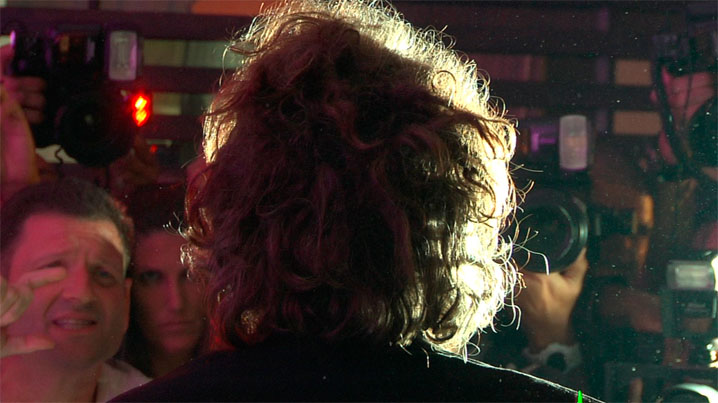7 Reasons Why the I'm Still Here Hoax Was Foolish

The cat is out of the bag: Casey Affleck admitted in no uncertain terms that his I’m Still Here and all of its public antics were part of a (not so) elaborate hoax. The film follows Affleck’s brother-in-law Joaquin Phoenix as he retires from acting and tries his hand as a hip-hop artist. I saw the film last week but never ended up writing a review. Now that we all know the truth, I’d like to point out a few reasons why the entire project was a wild misstep for those involved.
1. It wasn’t a great hoax.
At no point throughout the two years devoted to creating the character of dark and disturbed Joaquin/J.P. did anyone not consider the possibility that this was all a hoax. While there was a great deal of coverage on his retirement from acting after a meteoric rise, the story seemed to always be followed by another one about how fake the whole event seemed. Beyond that, what was realized in the execution of this joke? Nothing. At least Jerry Springer was able to tap into the American psyche. What does J.P. reveal about anything?
2. It wasn’t a great movie.
Even accepting the film as fiction doesn’t make up for the scheme. It is clunky and corny, manipulative and, at times, boring. Even at its most revealing moments, we are thrust back into the insanity of J.P.’s devolution, never really getting to see something more human emerge from this confused shell of a man. The film’s ending implies that we should feel for him with an overlong shot of him submerging in Panamanian waters, but instead the film feels truncated, stalled. Narratively, for a fake film, one could do a lot better.
3. It was too childish.
The most talked about moments of the film involve Phoenix snorting cocaine and ordering hookers as if they were so many pizzas. This clued most people into the fake-ness of the film, though not because we would like to think better of what movie-stars do with their hard earned cash. It broke through the facade because it was a childish scene, the kind of lifestyle prepubescent minds think rock stars would have. It felt put on. And then there’s the scene where a costar takes a dump on Joaquin’s face. Enough said.
4. They revealed the truth too soon.
It should have been clear, for a long time, that there would be creative consequences for making this film. For whatever reason, Affleck and Phoenix decided to tell the world it was a documentary and run with it, even through screenings at the Venice and Toronto Film Fests. Fine. Why not run with it a bit longer? Andy Kaufman took his Jerry Lawler prank to the grave and it remained a secret for a decade after his passing. Charlie Kaufman (no relation) allowed himself to be nominated for two Oscars as both himself and the fictional Donald Kaufman just to keep up appearances for the meta Adaptation. If this was all about audience engagement, trying to get people to unravel their hinted puzzle, why not let us all stew in it for some time? There is a simple answer: the film got terrible reviews and both of them would like to get back to work.
5. They could have made the same film without deception.
When you get down to the nuts and bolts of the whole operation, the public appearances and tabloid press version of this story stands separately from the film itself. They could have made the exact same film without the put-ons. Do they think audiences are so stupid that they wouldn’t be able to differentiate the Joaquin character from the real Joaquin? This gets back to this really not being such a great hoax in the first place.
6. The performance was marred by the whole escapade.
In his explanation for the hoax, Affleck refers to Phoenix’s performance in the film as his best yet. That’s debatable, though the character is weighed down by the film’s concept. If you watch closely, there are actually many Joaquins on display; he’s a schizophrenic character. His arc, as it were, has more of an ebb and flow than any real direction. It’s not easy to stay in character for two years, but then again it’s not easy to pull off the best performance of your career.
7. The New York Times reveal is horseshit.
While I don’t think he should have revealed that it was a hoax so soon, there are a million ways Casey Affleck could have copped to this that would have been more explosive, more fun than “over a meat-free, cheese-free vegetable sandwich” with Michael Cieply (no offense). Phoenix will be on Letterman next Wednesday, an obvious place for a reveal. They could have showed up at a theater to explain things away; they could have gone out with a bang. Instead, Affleck sounds like a wet noodle in the Grey Lady: “I never intended to trick anybody…The idea of a quote, hoax, unquote, never entered my mind.” Oh please, pick up a newspaper or read a blog, the word hoax was used in nearly every piece of reportage on this film for years now.